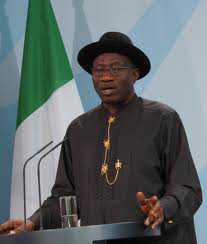 The Presidency yesterday said Nigeria would not feel the impact of the recent discovery of oil in commercial quantity by the United States.
The Presidency yesterday said Nigeria would not feel the impact of the recent discovery of oil in commercial quantity by the United States.
It said the Federal Government was rather adopting appropriate strategies to mitigate the impact of the decline in the purchase of Nigeria’s oil by America, with increased volume of term of contracts with Asian refineries.
The Senior Special Adviser (Public Affairs) to the President, Dr. Doyin Okupe, gave the assurance in Abuja.
He said: “With increasing volume of crude sales to the Asian markets which stood at 120,000 barrels per day and with great prospects of increased volume of sales from the area, coupled with a combination of market openings in Europe, it will effectively compensate for the loss of the US market and offer needed support for Nigeria’s crude oil exports.”
Okupe said the decision of the administration of President Goodluck Jonathan to reduce dependency on crude oil sales resulted in aggregate increase in agricultural sector contributions which now stood at over 40 per cent of the Gross Domestic Product, GDP.
He said: “While the Nigerian economy, like other oil dependent ones globally, often suffer from drop in sales and fluctuation in international pricing, the Jonathan administration has implemented key reforms to reduce dependence on oil and these reforms have resulted in the agricultural sector alone contributing over 40 per cent to the GDP in two years.
“Oil exports are now 69 per cent of our total exports as against 91 per cent in 2008. In addition, Europe has become a major destination for Nigerian crude oil cargoes, with the volume of Nigerian crude oil grades going to Europe increasing from 28 per cent in 2011 to about 38 per cent in 2012.
“A major factor for the growing demand of Nigerian crudes in Europe has been the Free Trade Agreement between Europe and South Korea. It is more profitable under this agreement to sell North Sea crude oil grades to Korea.
“Many companies prefer to trade their cargoes in Korea thus creating shortfall in Europe.
In addition, the North Sea as a whole is recording annual natural decline from matured field of about 10 per cent. “In the same light, Asia’s demand for light sweet grade is raising, stepping up demand for Nigerian grades. India in particular is consistently taking an average of 120,000 barrels per day from Nigeria.
“On the problems of high food import, the Jonathan administration has achieved a reduction in the quantity of importation of rice, a major staple food and dominant import item which drains enormous foreign exchange, from 5.2 metric tons to a little over two million metric tons in two years with the ultimate goal of attaining 100 per cent sufficiency by 2015.
“Wheat imports have reduced from 4.1 million metric tons to 3.7 million metric tons within the same period. Sugar import is also on the decline.
“Despite ravaging floods in 2012, Nigeria did not suffer anticipated food shortage as a result of proactive measures to assist farmers with flood resistant seedlings and dry season farming as 8 million metric tons was added to domestic food supply in 2012 which was 70 per cent above target.
“In total, all the above measures have saved Nigeria N857 billion which would have been spent on food imports.”
Also speaking on the issue of high cost of governance, Okupe insisted that “under the administration of President Jonathan, Nigeria’s recurrent expenditure dropped from 74 per cent in 2011 to 68 per cent in 2013 and will further go down in the next fiscal year. “Domestic government borrowing declined from 852 billion in 2011 to 588 billion in 2013.
Our national debt is 21 per cent of our GDP compared to South Africa (42.7 per cent), Sub Saharan Africa (34.2 per cent), USA (106 per cent), Japan (225 per cent) and United Kingdom (90 per cent). “Our foreign reserve has climbed up to almost $50 billion while the exchange rate has been steady.
“On infrastructure, major roads like the Kano – Maiduguri, Benin – Ore, Abuja – Lokoja, Owerri – Onitsha, Katsina – Daura, East – West roads and many others are being rehabilitated or reconstructed.
“The second Niger Bridge has been concessioned and work is in steady progress. The Lagos – Ibadan Expressway was awarded yesterday at a total cost of N160.7 billion.”



























